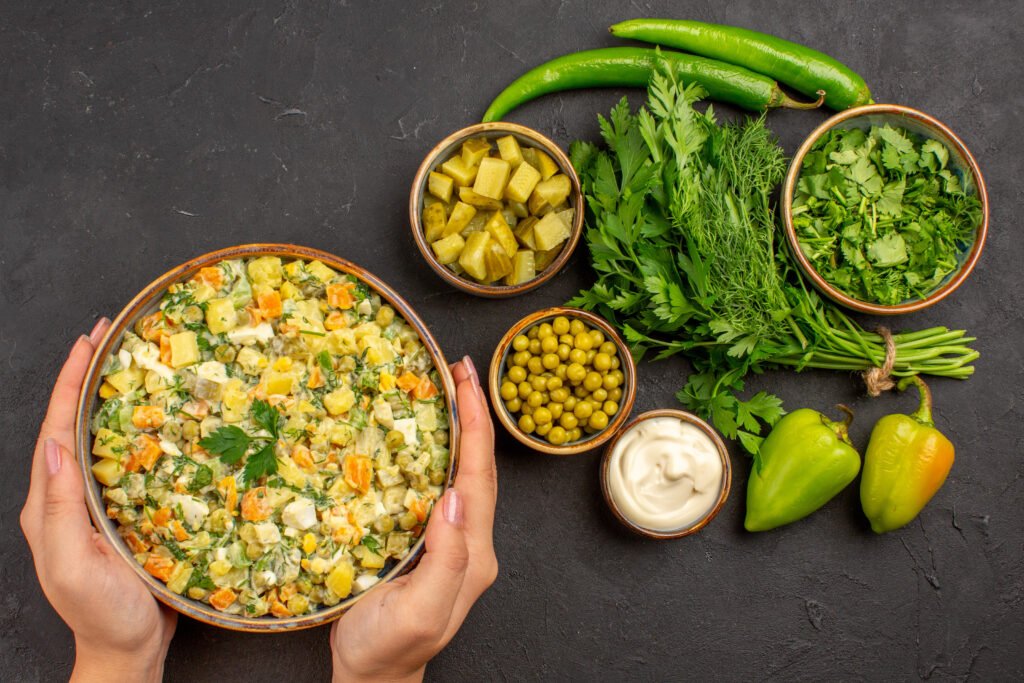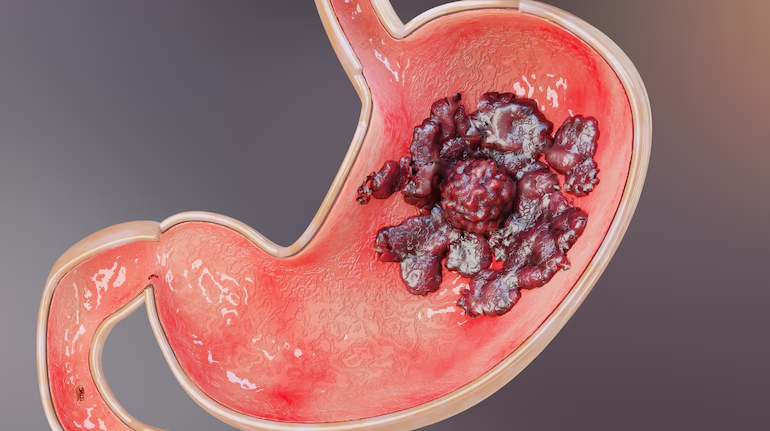Ayurveda offers a holistic approach to treating peptic ulcers by addressing root causes—imbalance of Pitta dosha—and combining gentle diet, herbal remedies, and lifestyle modifications for healing and prevention, with minimal side effects compared to allopathy. A carefully curated diet is central to Ayurvedic management of peptic ulcer condition and supports gentle digestion while promoting healing.
Causes and Symptoms
Peptic ulcers occur due to a breach in the lining of the stomach or upper intestine, primarily from Helicobacter pylori infection or long-term NSAID use, and are worsened by stress, acidic foods, and poor lifestyle habits.
- Main causes: H. pylori, NSAIDs, stress, excess alcohol, smoking.
- Typical symptoms: Burning stomach pain (especially when fasting or at night), heartburn, nausea, bloating, intolerance to greasy/spicy foods, and in severe cases, vomiting blood or black stools.
Ayurvedic Methods of Treatment
Ayurveda focuses on balancing Pitta dosha, reducing heat in the GI tract, and using detoxification, herbal remedies, and a mindful diet.
- Detoxification (sodhana), especially virechana (purgation), is often administered to expel excess Pitta.
- Pacification therapies: Snehapanam (medicated ghee), Takradhara (buttermilk therapy), Abhyanga (oil massage), and herbal preparations are prescribed for healing and reducing inflammation.
- Herbs: Aloe vera (cooling), licorice root (Yashtimadhu, mucosal protector), amla (reduces acidity), shatavari (increases mucus), cumin and fennel (gentle on digestion), Guduchi, Triphala.
Ayurvedic Diet Principles
A Pitta-pacifying diet is fundamental in managing peptic ulcers.

- Prefer warm, cooked, and bland foods: Rice (especially white or well-cooked brown), mung beans, soups, stews, steamed vegetables, bananas, coconut water, ghee with milk, buttermilk with cumin and turmeric.
- Calming foods: Almonds, honey, and non-acidic fruits (avoid citrus).
- Foods to avoid: Spicy, fried, processed foods, citrus fruits, vinegar, pickles, excessive tea/coffee/alcohol, sour/fermented foods.
- Hydration: Drink 2–3 litres of water daily to maintain digestive strength.
- Eat smaller, frequent meals to avoid straining the stomach and excessive acid production.
Allopathy vs Ayurveda: A Comparative Table
Why Ayurveda is a Better Cure
Ayurveda’s personalized, gentle methods promote deep healing by focusing on the root cause—Pitta imbalance—and using natural remedies and diet, thereby minimizing side effects and supporting long-term digestive health. Unlike allopathic drugs, which act quickly but may risk relapse or complications, Ayurvedic treatment builds resilience in the digestive system and offers preventive strategies through lifestyle, stress management, and ongoing dietary care.
Sample Ayurvedic Diet for Peptic Ulcer
- Breakfast: Well-cooked rice porridge with ghee
- Mid-morning: Coconut water or buttermilk with cumin
- Lunch: Mung bean soup, steamed vegetables like bottle gourd or pumpkin, white rice
- Snack: Ripe banana, soaked almonds
- Dinner: Stewed apples or pears, rice or soft-cooked lentils
- Avoid: Tea/coffee, citrus, spicy/oily food, pickles, vinegar
- Herbal Supplements: Shatavari with milk, licorice tea, amla juice, aloe vera juice (with supervision)
Detailed Ayurvedic Diet for Peptic Ulcer
Here is a detailed Ayurvedic diet chart curated for the treatment and prevention of peptic ulcers. This plan emphasizes foods that soothe gastric irritation, support mucosal healing, and pacify aggravated Pitta dosha, while avoiding triggers.
Healing Foods and Herbs
- Ghee and licorice decoction (1 tsp licorice boiled in 2 cups water, reduced to 1; mix with 1 tsp ghee; take on empty stomach for 3 weeks).
- Shatavari, amla (Indian gooseberry), and guduchi can also support mucosal healing and reduce acidity.
- Mung beans, coconut milk, soft-cooked pulses, and mildly spiced broths.
Foods and Habits to Avoid
- Spicy, fried, highly salted, oily, and sour/fermented foods (pickles, vinegar, citrus).
- Processed foods, caffeinated beverages, carbonated drinks, alcohol, and excessive tea/coffee.
- Raw/unripe fruits and salads, especially if digestion is weak.
- Untimely meals and long gaps between eating.
Additional Lifestyle Tips
- Eat smaller, more frequent meals; chew thoroughly and eat mindfully.
- Stay hydrated with lukewarm water; avoid cold drinks.
- Incorporate gentle yoga and breathing exercises for digestive balance and stress reduction.
- Avoid NSAIDs, aspirin, and unnecessary painkillers.
Conclusion
An Ayurvedic diet for peptic ulcer emphasizes cooked, cooling, and non-irritating foods in moderate quantities to protect and heal the stomach lining, restoring digestive balance and supporting long-term gut health. This approach is sustainable, gentle, and can prevent recurrence when combined with stress management and mindful lifestyle practices. Always consult qualified professionals for custom care.





0 Comments